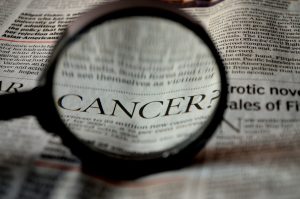Understanding the Side Effects of Breast Cancer Treatment
Persons diagnosed with breast cancer have a wide range of treatment options at their disposal. Treatment will however have its side effects, the nature and severity of which will depend on the location of the cancer cells, the type of treatment applied and the general well-being and health of the patient. The following is a look at some of the side effects of breast cancer medication.
 Nausea
Nausea
Nausea may be caused by the cancer itself particularly where the liver, brain or bone is affected. However, nausea can also be the result of chemotherapy, radiotherapy, strong analgesics or constipation. It may be worsened by anxiety.
Nausea is managed using antiemetic drugs or steroids. An antiemetic that is effective for one breast cancer patient may prove ineffective for another person. This is not only because antiemetics work in different ways but also that the root cause of the nausea may be different.
Fatigue
Fatigue is a one of the most common symptoms of breast cancer. It may also be brought about or exacerbated by treatment including radiotherapy and chemotherapy. In addition, the lack of sleep, poor nutrition, anxiety, stress and depression associated with a breast cancer diagnosis can also drain the patient of energy and contribute to a persistent feeling of tiredness.
Fatigue hampers the cancer patient’s ability to cope, their independence and quality of life. Fortunately, it is treatable and should be brought to the doctor’s attention at the earliest.
Hair Loss
Hair is an integral part of a woman’s identity. Unfortunately, breast cancer chemotherapy and radiotherapy regularly causes hair loss. For many women, the distress and low self-esteem experienced due to the hair loss itself is compounded by the loss of privacy on their breast cancer diagnosis.
Most times, the hair grows back at the end of chemotherapy treatment but a few drugs may cause permanent loss (alopecia). If losing your hair is important to you, discuss with your oncologist on the drug options available to minimize the loss.
Source: Pixabay
Peripheral Neuropathy
Peripheral neuropathy is a discomfort, numbness, burning, tingling or sudden stabbing pain in the hands and feet due to nerve damage. Some chemotherapy drugs damage the nerves responsible for communication between the brain and the limbs. These drugs may be intravenous (such as eribulin and taxanes) or oral (for example, capecitabine and vinorelbine).
Chemotherapy-induced peripheral neuropathy can start at any phase of the treatment process and could worsen with continued treatment. The nerve damage impairs the body’s ability to send signals to joints, muscles, the skin and even internal organs. It usually starts in the toes before spreading to the legs, fingers, hands and arms. Contact your oncologist on management alternatives.
Heightened Risk of Infection
Chemotherapy, especially the taxane and anthracycline groups of drugs, can significantly lower the body’s production of white blood cells. This reduces immunity and increases the risk of infection. For this reason and as a precaution, the doctor will perform regular blood tests during treatment to keep tabs on the white blood cell count.
A fever of 38ºC or more requires immediate attention since it could be a sign of infection. You should contact any member of your treatment team or otherwise visit the nearest hospital emergency department.
Diarrhea
Chemotherapy drugs such as capecitabine, docetaxel and fluorouracil can damage the cells that line the large and small intestine, thereby causing diarrhea. Diarrhea may also be a symptom of a bowel infection.
Usually, diarrhea is a minor side effect that you can live with. However, serious cases (more than six episodes in a day or diarrhea that’s unresponsive to diet changes and medication) call for immediate notification of a nurse or oncologist. Untreated diarrhea may lead to electrolyte imbalance, dehydration and kidney problems.
Remember, each individual is unique and is unlikely to experience all treatment side effects. The important thing is to pay attention to any changes to your body and notify your doctor accordingly. Breast cancer is one of the biggest challenges anyone will face but treating and managing the side effects can ensure the patient can maintain a decent quality of life.
















I am being treated for Stage 2A breast cancer right now — one more chemo treatment to go! My doctors have told me “we’re going for a cure here”, and I totally believe it WITHOUT QUESTION.
Breast cancer is not automatically a death…